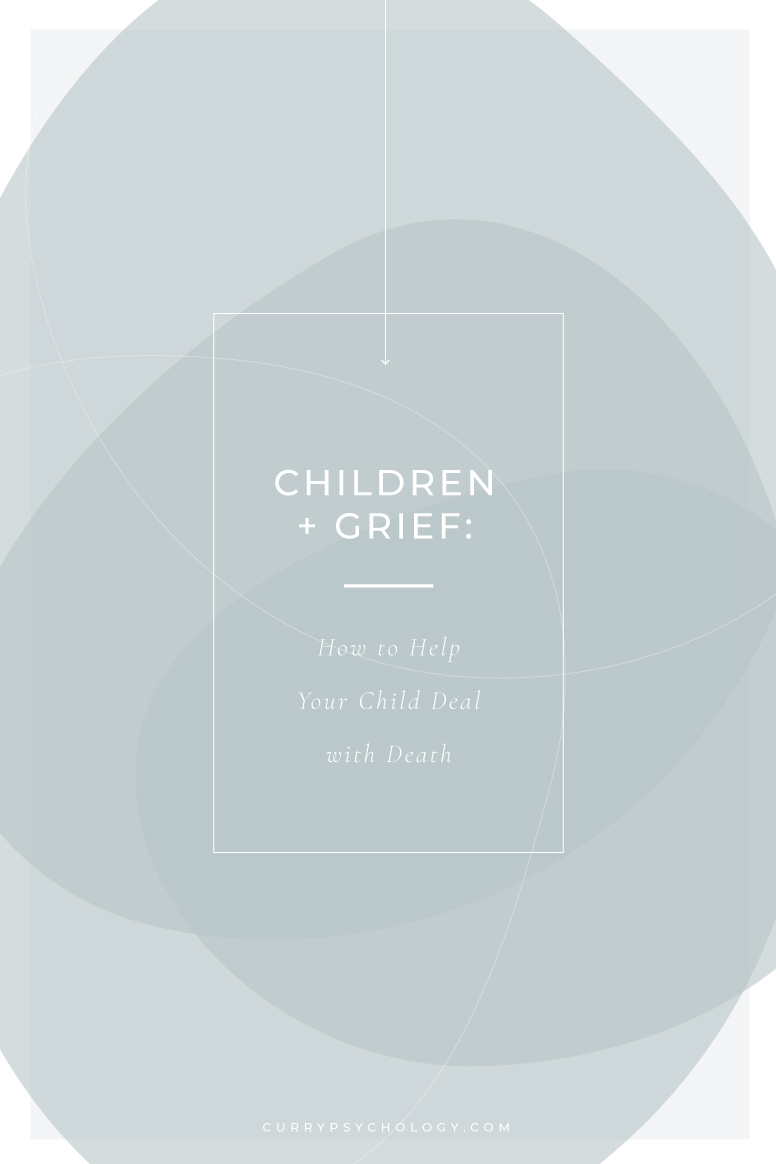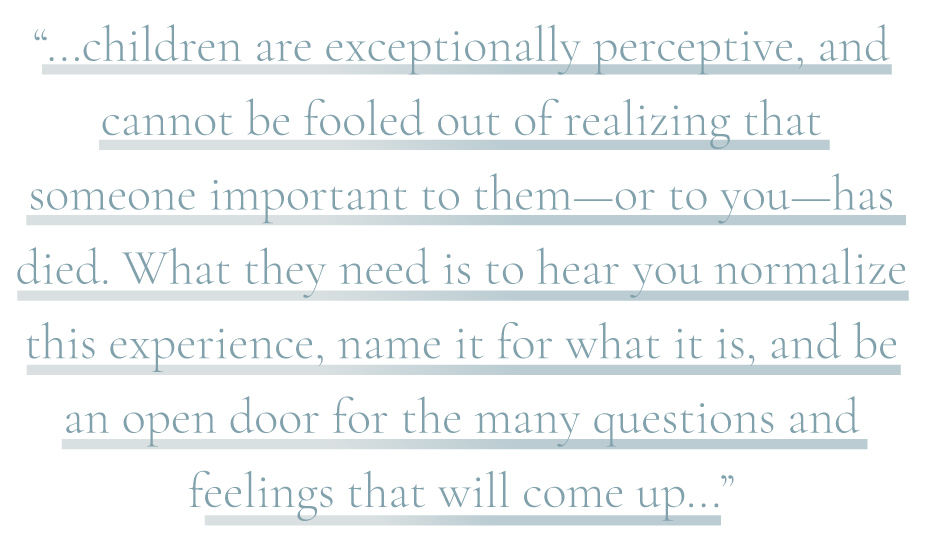February 01, 2020
How to Help Your Child Deal with Death
Helping children understand and process the death of a loved one is a complicated and often overwhelming task for parents and caregivers. Many adults, themselves uncomfortable with the finality and magnitude of death, elect to avoid the topic, assuming they can somehow distract the child from the fact that a death has occurred. To see the consequences of modeling and encouraging an avoidant response to death, one need look no further than the acclaimed Australian psychological-horror film The Babadook. In this exceptional story, the protagonist’s husband dies in a car accident while driving her to the hospital to deliver their son. In the years that follow, our traumatized heroine refuses to discuss either the accident or her deceased husband with her growing son. The boy’s behavior becomes increasingly chaotic as his mother sinks deeper into depression and psychosis—a psychosis that is only lifted when, without spoiling the film, she is able to confront her grief and discuss it—and her deceased husband—openly. Only then do she and her son begin to heal.
Among other things, The Babadook illustrates that children are exceptionally perceptive, and cannot be fooled out of realizing that someone important to them—or to you—has died. What they need is to hear you normalize this experience, name it for what it is, and be an open door for the many questions and feelings that will come up. The following tips provide a solid framework for helping your child understand and process death:
1. Tell it like it is. If a death has occurred, use the word death; if someone is in the process of dying, you can say that, too. Resist the temptation to use euphemisms or to speak in metaphors, as children can be very literal. If your faith background includes concepts of an afterlife or reincarnation, you can of course use that terminology, too – but recognize that children will still want to understand what happened to the deceased person’s body, which, in simple terms, is that it is no longer functioning. (Note: Avoid describing the dead person as being “asleep,” as this has been known to cause sleep problems in grieving children.)
2. Be simple and direct. Depending on their age, children need declarative statements. Long, meandering narratives can confuse them and only increase their uncertainty about what actually happened. If you yourself are not sure how to describe death, it might be a good idea to practice beforehand. If a child is under age five, it can suffice to tell them that the person’s body has stopped working.
3. Reassure them. Children of a certain age can have a tendency to blame themselves for the death. If you sense this concern from your child, actively reassure him or her as many times as necessary that it is not their fault.
4. Exercise patience. Children can have many questions—sometimes the same ones over and over. Take the time to answer them and know that it’s ok to say you don’t know. Part of the human experience is that death is a mystery—something from which the living cannot return to give account. It therefore makes sense that children would have a hard time grappling with it, as it is a profound truth for even adults to absorb.
5. Accept their reactions. Everyone experiences grief differently, and children are no exception. Allow a lot of space for them to feel their feelings, which could include anger, guilt, fear, and even ambivalence.
6. Honor the deceased. The rituals of grieving are powerful healing tools for children and adults alike. Ask the child to write a poem, draw a picture, or sing a song in honor of the person that has died. Help them set up a memorial to the deceased somewhere in the house, if they so desire. Overall: find a place for them to direct the love they still feel for the person they lost.
Helping a child with grief can be one of the hardest things a parent or caregiver has to face, as most of the time the caregiver, too, is grieving. The whole endeavor requires us to do the hard work of processing our own feelings in order to help our child process his or hers. But such is the journey of parenting: constantly calling us to grow into our highest selves.







